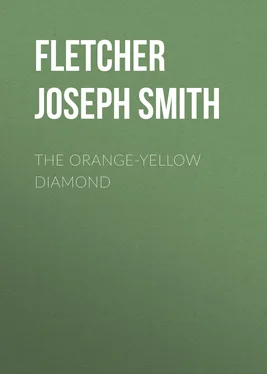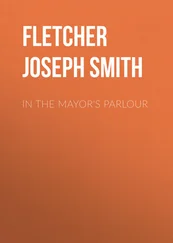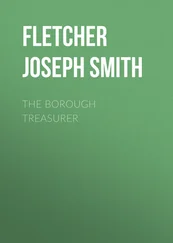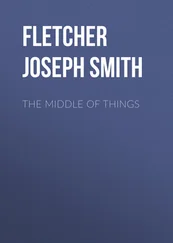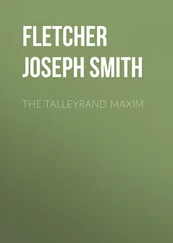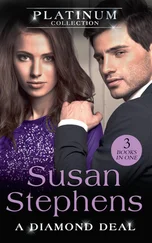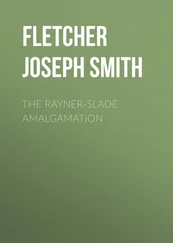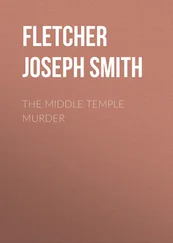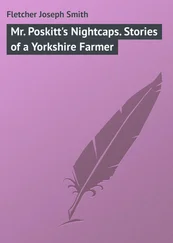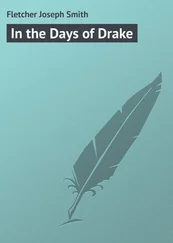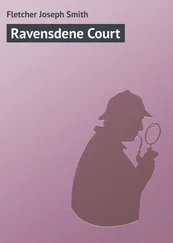Joseph Fletcher - The Orange-Yellow Diamond
Здесь есть возможность читать онлайн «Joseph Fletcher - The Orange-Yellow Diamond» — ознакомительный отрывок электронной книги совершенно бесплатно, а после прочтения отрывка купить полную версию. В некоторых случаях можно слушать аудио, скачать через торрент в формате fb2 и присутствует краткое содержание. Жанр: foreign_prose, Классический детектив, foreign_detective, foreign_antique, на английском языке. Описание произведения, (предисловие) а так же отзывы посетителей доступны на портале библиотеки ЛибКат.
- Название:The Orange-Yellow Diamond
- Автор:
- Жанр:
- Год:неизвестен
- ISBN:нет данных
- Рейтинг книги:5 / 5. Голосов: 1
-
Избранное:Добавить в избранное
- Отзывы:
-
Ваша оценка:
- 100
- 1
- 2
- 3
- 4
- 5
The Orange-Yellow Diamond: краткое содержание, описание и аннотация
Предлагаем к чтению аннотацию, описание, краткое содержание или предисловие (зависит от того, что написал сам автор книги «The Orange-Yellow Diamond»). Если вы не нашли необходимую информацию о книге — напишите в комментариях, мы постараемся отыскать её.
The Orange-Yellow Diamond — читать онлайн ознакомительный отрывок
Ниже представлен текст книги, разбитый по страницам. Система сохранения места последней прочитанной страницы, позволяет с удобством читать онлайн бесплатно книгу «The Orange-Yellow Diamond», без необходимости каждый раз заново искать на чём Вы остановились. Поставьте закладку, и сможете в любой момент перейти на страницу, на которой закончили чтение.
Интервал:
Закладка:
"S'elp me!—one of ourselves!" whispered Melky Rubinstein at Lauriston's elbow. "Twig him!"
Lauriston was quick enough of comprehension and observation to know what Melky meant. Mr. Spencer Levendale was certainly a Jew. His dark hair and beard, his large dark eyes, the olive tint of his complexion, the lines of his nose and lips all betrayed his Semitic origin. He was evidently a man of position and of character; a quiet-mannered, self-possessed man of business, not given to wasting words. He glanced at the card which Ayscough had sent in, and turned to him with one word.
"Well?"
Ayscough went straight to the point.
"I called, Mr. Levendale, about that advertisement of yours which appears in all this morning's newspapers," he said. "I may as well tell you that that book of yours was found yesterday afternoon, under strange circumstances. Mr. Daniel Multenius, the jeweller and pawnbroker, of Praed Street—perhaps you know him, sir?"
"Not at all!" answered Levendale. "Never heard of him."
"He was well known in this part of the town," remarked Ayscough, quietly. "Well, sir—Mr. Multenius was found dead in his back-parlour yesterday afternoon, about five-thirty, by this young man, Mr. Lauriston, who happened to look in there, and I myself was on the spot a few minutes later. Your book—for it's certainly the same—was lying on the table in the parlour. Now, this other young man, Mr. Rubinstein, is a relation of Mr. Multenius's—from enquiries he's made, Mr. Levendale, it's a fact that the book was neither pawned nor sold at Multenius's, though it must certainly have been brought there between the time you lost it and the time we found the old gentleman lying dead. Now, we—the police—want to know how it came there. And so—I've come round to you. What can you tell me, sir?"
Levendale, who had listened to Ayscough with great—and, as it seemed to Lauriston, with very watchful—attention, pushed aside a letter he was writing, and looked from one to the other of his callers.
"Where is my book?" he asked.
"It's all right—all safe, mister," said Melky. "It's locked up in a cupboard, in the parlour where it was found, and the key's in my pocket."
Levendale turned to the detective, glancing again at Ayscough's card.
"All I can tell you, sergeant," he said, "is—practically—what I've told the public in my advertisement. Of course, I can supplement it a bit. The book is a very valuable one—you see," he went on, with a careless wave of his hand towards his book-shelves. "I'm something of a collector of rare books. I bought this particular book yesterday afternoon, at a well-known dealer's in High Holborn. Soon after buying it, I got into a Cricklewood omnibus, which I left at Chapel Street—at the corner of Praed Street, as a matter of fact: I wished to make a call at the Great Western Hotel. It was not till I made that call that I found I'd left the book in the 'bus—I was thinking hard about a business matter—I'd placed the book in a corner behind me—and, of course, I'd forgotten it, valuable though it is. And so, later on, after telephoning to the omnibus people, who'd heard nothing, I sent that advertisement round to all the morning papers. I'm very glad to hear of it—and I shall be pleased to reward you," he concluded, turning to Melky. "Handsomely!—as I promised."
But Melky made no sign of gratitude or pleasure. He was eyeing the rich man before him in inquisitive fashion.
"Mister!" he said suddenly. "I'd like to ask you a question."
Levendale frowned a little.
"Well?" he asked brusquely. "What is it?"
"This here," replied Melky. "Was that there book wrapped up? Was it brown-papered, now, when you left it?"
It seemed to Lauriston that Levendale was somewhat taken aback. But if he was, it was only for a second: his answer, then, came promptly enough.
"No, it was not," he said. "I carried it away from the shop where I bought it—just as it was. Why do you ask?"
"It's a very fine-bound book," remarked Melky. "I should ha' thought, now, that if it had been left in a 'bus, the conductor would ha' noticed it, quick."
"So should I," said Levendale. "Anything else?" he added, glancing at Ayscough.
"Well, no, Mr. Levendale, thank you," replied the detective. "At least not just now. But—the fact is, Mr. Multenius appears to have come to his death by violence—and I want to know if whoever took your book into his shop had anything to do with it."
"Ah!—however, I can't tell you any more," said Levendale. "Please see that my book's taken great care of and returned to me, sergeant. Good-morning."
Outside, Ayscough consulted his watch and looked at his companions.
"Time we were going on to the inquest," he remarked. "Come on—we'll step round there together. You're both wanted, you know."
"I'll join you at the Coroner's court, Mr. Ayscough," said Melky. "I've got a few minutes' business—shan't be long."
He hurried away by a short cut to Praed Street and turned into Mrs. Goldmark's establishment.
Mrs. Goldmark herself was still ministering to Zillah, but the young woman whom Melky had seen the night before was in charge. Melky drew her aside.
"I say!" he said, with an air of great mystery. "A word with you, miss!—private, between you and me. Can you tell me what like was that fellow what you believed to ha' lost that there cuff stud you showed me in Mrs. Goldmark's desk?—you know?"
"Yes!" answered the young woman promptly. "Tall—dark—clean-shaved—very brown—looked like one of those Colonials that you see sometimes—wore a slouch hat."
"Not a word to nobody!" warned Melky, more mysteriously than ever. And nodding his head with great solemnity, he left the eating-house, and hurried away to the Coroner's Court.
CHAPTER EIGHT
THE INQUEST
Until he and Ayscough walked into this particular one, Lauriston had never been in a Coroner's Court in his life. He knew very little about what went on in such places. He was aware that the office of Coroner is of exceeding antiquity; that when any person meets his or her death under suspicious circumstances an enquiry into those circumstances is held by a Coroner, who has a jury of twelve men to assist him in his duties: but what Coroner and jury did, what the procedure of these courts was, he did not know. It surprised him, accordingly, to find himself in a hall which had all the outward appearance of a court of justice—a raised seat, on a sort of dais, for the Coroner; a box for the jury; a table for officials and legal gentlemen; a stand for witnesses, and accommodation for the general public. Clearly, it was evident that when any one died as poor old Daniel Multenius had died, the law took good care that everybody should know everything about it, and that whatever mystery there was should be thoroughly investigated.
The general public, however, had not as yet come to be greatly interested in the death of Daniel Multenius. Up to that moment the affair was known to few people beyond the police, the relations of the dead man, and his immediate neighbours in Praed Street. Consequently, beyond the interested few, there was no great assemblage in the court that morning. A reporter or two, each with his note-book, lounged at the end of the table on the chance of getting some good copy out of whatever might turn up; some of the police officials whom Lauriston had already seen stood chatting with the police surgeon and a sharp-eyed legal looking man, who was attended by a clerk; outside the open door, a group of men, evidently tradesmen and householders of the district, hung about, looking as if they would be glad to get back to their businesses and occupations. Melky, coming in a few minutes after Lauriston had arrived, and sitting down by him, nudged his elbow as he pointed to these individuals.
Читать дальшеИнтервал:
Закладка:
Похожие книги на «The Orange-Yellow Diamond»
Представляем Вашему вниманию похожие книги на «The Orange-Yellow Diamond» списком для выбора. Мы отобрали схожую по названию и смыслу литературу в надежде предоставить читателям больше вариантов отыскать новые, интересные, ещё непрочитанные произведения.
Обсуждение, отзывы о книге «The Orange-Yellow Diamond» и просто собственные мнения читателей. Оставьте ваши комментарии, напишите, что Вы думаете о произведении, его смысле или главных героях. Укажите что конкретно понравилось, а что нет, и почему Вы так считаете.
